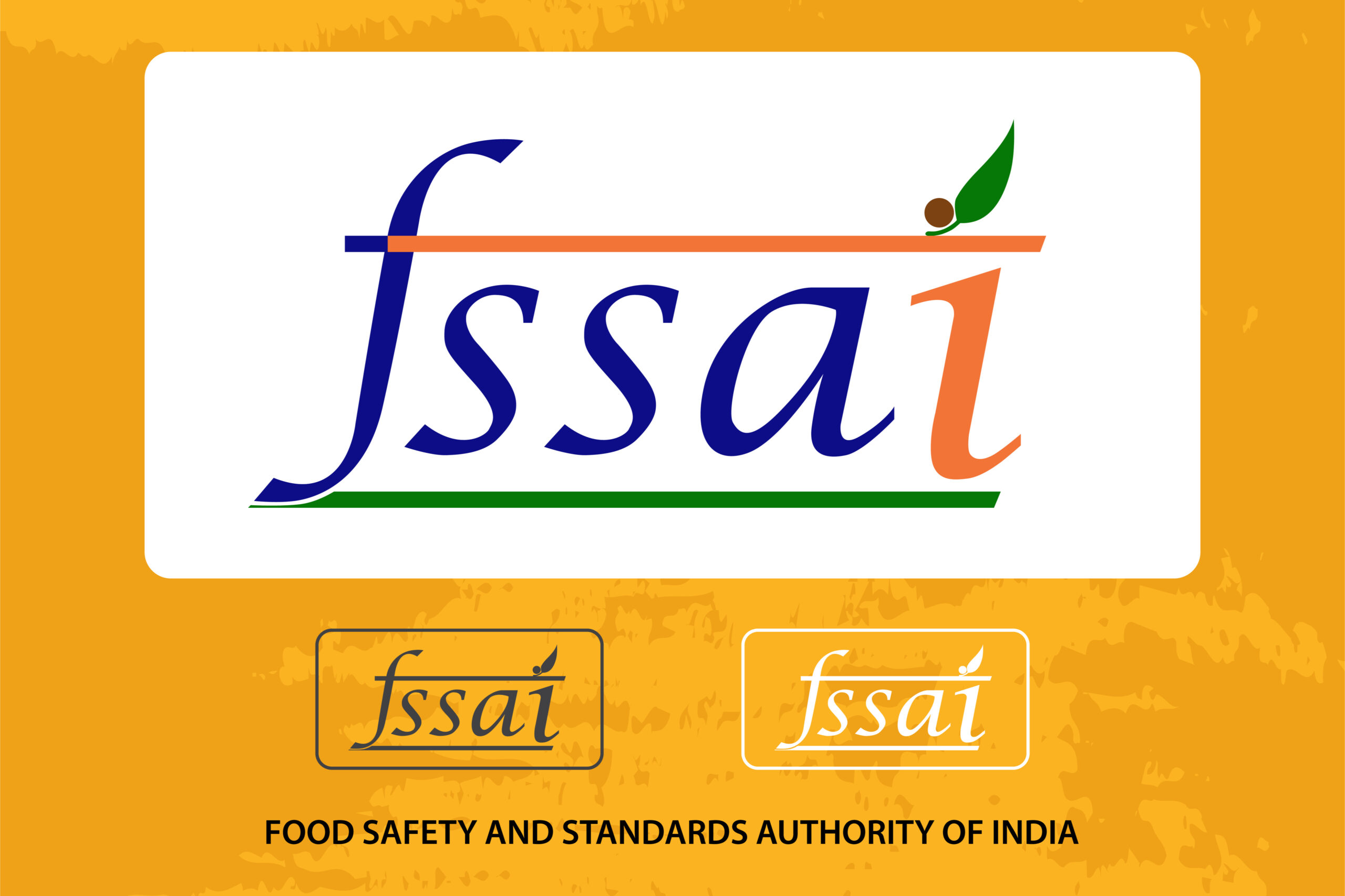Home-made food items have been sold by many people since the lockdown began. But, the Food Safety and Standards Authority of India (FSSAI) has noticed that there have been very few registrations of such home-based businesses since then. FSSAI has therefore issued a directive to all sellers of home-made food in India. It has been said that selling home-made food items without a license or registration will invite a fine of up to ₹ 5 lakh and imprisonment for up to 6 months. FSSAI registration is required for businesses with sales below ₹ 12 lakh and a license is compulsory for businesses with sales above ₹ 12 lakh.
Introduction
The FSSAI was established under the Food Safety and Standards Act (FSS Act) of 2006 to keep a check on the ever-growing problem of food adulteration and mixing of additives ever since the food industry began playing a major role in the economy.
What is FSSAI?
The Food Safety and Standards Authority of India or Food Safety Laws is an organisation that governs and monitors the food business of the country. Moreover, it is an autonomous body established under the Ministry of Health and Family Welfare, Government of India.
Further, the FSS Act is a consolidating statute that brought the provisions of several different laws (Prevention of Food Adulteration Act, 1954; Vegetable and Oil (Control) Order, 1947; Similarly, Milk and Milk Products, 1992), etc. under one umbrella by laying down standards based on scientific research and calculation for the regulation of the manufacture, storage, distribution, sale and import by food businesses in India.
Reason for Enactment
The FSS Act was enacted to:
- Consolidate multiple laws in the country relating to food safety,
- Establish a single point reference system,
- Additionally, establish the Food Safety and Standards Authority of India (FSSAI)
- Cultivate safe food practices
- Further, license food business for efficient monitoring
- Ensure compliance through inspections and penalties
The Present Functions of the FSSAI Include:
- Framing of Regulations to lay down the standards and guidelines of food safety.
- Additionally, granting FSSAI food safety license and certification for food businesses.
- Moreover, laying down procedures and guidelines for laboratories in food businesses.
- To provide suggestions to the government in framing the policies.
- Further, to collect data regarding contaminants in food products, identification of emerging risks, and the introduction of a rapid alert system.
- Creating an information network across the country about food safety.
- Moreover, promote general awareness about food safety and food standards.
The food processing industry is arguably one of the largest industries in India and has a huge potential to contribute to the upliftment of the agricultural economy, creation of large scale manufacturing units and food chain outlets, resulting in the generation of employment and export earnings.
Key Regulations by the FSS Act
General Principles for Food Safety and Articles of Food
The Food Safety and Standards Act has a few regulations mentioned which need to be followed by Food Business Operators such as Food Safety & Standards (Licensing & Registration of Food Businesses) Regulations, 2011. Moreover, Food Safety and Standards (Food Product Standards and Food Additives) Regulations, 2011; Food Safety and Standards (Contaminants, Toxins & Residues) Regulations, 2011; Additionally, Food Safety and Standards (Prohibition and Restrictions on Sale) Regulations, 2011; Similarly, Food Safety & Standards (Packaging & Labelling) Regulations, 2011, etc. The regulations under the act allow or prohibit the inclusion of substances in food that is meant for human consumption
The Food Safety and Standards Act expressly prohibits the inclusion of harmful substances such as insecticides in food. Further, the Act also mentions clearly that no article of food shall contain any contaminant, naturally occurring toxic substances or toxins, hormones, heavy metals, insecticide and pesticide residues, veterinary drug residues, antibiotic residues, solvent residues, pharmacologically active substances, and microbiological counts above tolerance limit as mentioned in the regulations as well
The act mentions that, if it is a novel, genetically-modified article of food, irradiated food, organic food, foods for special dietary uses, functional foods, nutraceuticals, health supplements, proprietary foods, etc. it cannot be manufactured, distributed, sold, or imported into India. Moreover, only those that the regulations and provisions of the Food Safety and Standards Act allow can be possible
The Act mandates special labelling for different kinds of food and Food Business Operators are to adhere to these requirements strictly. Additionally, imported food has other specific requirements that are to be followed
Packaging and Labelling Regulations
According to the Food Safety & Standards (Packaging & Labelling) Regulations, 2011, FSSAI Regulations are a comprehensive set of guidelines that all food product manufacturers and brands should follow. Further, FSSAI imposes twelve primary labelling regulations for any food packaging. These are:
- Name of the food
- The list of ingredients
- Nutritional information
- Declaration if the food product is vegetarian or not
- Declaration of the food additives used
- Name and complete address of the manufacturer
- Customer care details,
- Quantity
- Retail sale price
- FSSAI logo and license number,
- Batch identification number, the date of marketing, country of origin
- The instructions for use.
FSSAI License and Registration
Under the Food Safety & Standards (Licensing & Registration of Food Businesses) Regulations, 2011, a Food Business Operator (FBO) is required to obtain a food license upon exceeding a particular turnover. Additionally, the type of food license to be obtained depends on the scale of the business and the type of business activity the food business operator is involved in. Only after submitting the documents required for an FSSAI license, the application would be considered by the government authority. Further, there are three types of FSSAI Licenses:
- Basic FSSAI Registration: This type of registration is mandatory for petty food business operators. It is for the business whose turnover does not exceed the limit of ₹. 12 lac per annum. Additionally, people who come under this category are mostly petty retailers, itinerant vendors, hawkers, or temporary stallholders.
- State FSSAI License: This license is mandatory for the food businesses with an annual turnover between ₹. 12 Lac – ₹. 20 Crore additionally or per annum. Further, the turnover limit is the same for an FSSAI State Manufacturing license or FSSAI State trading license.
- Central FSSAI license: Central FSSAI license is mandatory for the food business whose annual turnover is above ₹. 20 Crore in case of trading or manufacturing or storage beyond certain limits as specified by the laws.
Procedure for Obtaining FSSAI Registration
- FSSAI registration is initiated by submitting Form A (application) to the Food and Safety Department.
- Additionally, this application can be accepted or it may be rejected by the Department within 7 days from the date of receipt of an application and the rejection has to be intimated to the applicant in writing
- Moreover, if the application is accepted, then the department will grant a registration certificate with the food registration online number and the photo of the applicant.
- FBO should prominently display the certificate of registration at the place of business during business hours.
Documents Required for Obtaining FSSAI License
| Documents | State License | Central License |
| Form B duly completed and signed | ✓ | ✓ |
| Plan of the processing unit showing the dimensions and operation-wise area allocation | ✓ | ✓ |
| List of Directors/ Partners/ Proprietor with address, contact details, and photo ID | ✓ | ✓ |
| Name and list of equipment and machinery used with the number and installed capacity | ✓ | ✓ |
| List of food category to be manufactured | ✓ | ✓ |
| Authority letter from manufacturer nominated a responsible person name and address | ✓ | ✓ |
| The analysis report of water to be used in the process to confirm the portability | ✓ | ✓ |
| Source of raw material for milk, meat, etc | ✓ | ⨉ |
| Recall plan wherever applicable | ✓ | ⨉ |
| Ministry of Commerce Certificate for 100% EOU | ✓ | ⨉ |
| NOC/PA document issued by FSSAI | ✓ | ⨉ |
| IE code document issued by DGFT | ✓ | ⨉ |
| Form IX | ✓ | ⨉ |
| Certificate from Ministry of Tourism | ✓ | ⨉ |
| Proof of possession of premises | ✓ | ✓ |
| Partnership deed/ affidavit of proprietorship | ✓ | ✓ |
| NOC and copy of License from the manufacturer | ✓ | ✓ |
| Copy of certificate obtained under the Coop Act 1861/Multi-State Cooperative Act 2002 | ⨉ | ✓ |
| Food safety management system plan or certificate | ✓ | ✓ |
| NOC from the municipality or local body | ✓ | ⨉ |
| Supporting document for proof of turnover and transportation | ✓ | ⨉ |
| Declaration form | ✓ | ⨉ |
Benefits of Procuring an FSSAI Food License
Obtaining a license can provide the food business with legal benefits, build goodwill, ensure food safety, create consumer awareness, and assist in business expansion. Also, it helps regulate, manufacture, store, distribute, and sell imported food.
Consequences of Non-Compliance
Any registered or licensed person under the FSSAI has to adhere to the rules and regulations under the FSS Act, 2006. Further, Food safety officers generally conduct inspections of the food business operator’s facility and identify the level of compliance with the regulation using a checklist. Based on the compliance level, the food safety officers mark it as:
- Compliance (C)
- Non-compliance (NC)
- Partial compliance (PC)
- Not applicable/Not observed (NA)
In accordance with Section 32 of the FSS Act, 2006, officers may issue improvement notices where necessary. A show-cause notice may be issued if the business operator fails to comply with the improvement notice. Food business operators aggrieved by an improvement notice can appeal to the State Commissioner of Food Safety. Additionally, the decision thereon can be challenged by appealing to the Food Safety Appellate Tribunal/High Court.
Conclusion
Consequently, any food business found to be in violation of the set rules will be punished.
In most cases, the penalty charge takes the form of a fee or monetary charge. The withdrawal of the license and keeping the business under a supervisor and routine inspection will be the penalty in case of a situation of grave violations or multiple accounts of rule-breaking.
Also Read,









